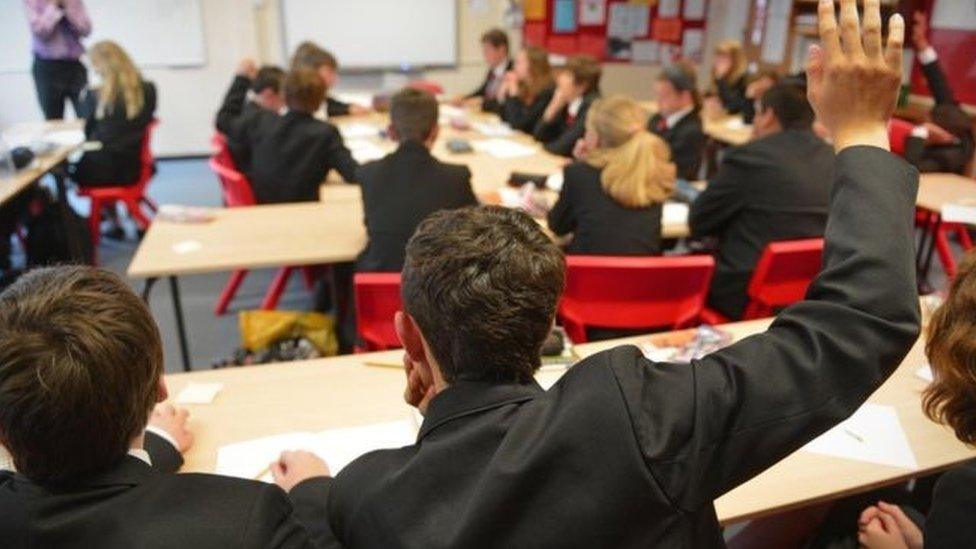Female genital mutilation: Children to be taught dangers
- Published

Secondary school pupils in England will be taught about the dangers of female genital mutilation (FGM) by 2020.
The new guidelines, to be announced on Monday, form part of the introduction of compulsory relationships and sex education classes in secondary schools.
The new guidance says secondary schools should address the physical and emotional damage caused by FGM.
The practice was outlawed in England, Wales and Northern Ireland in 2003 and in Scotland in 2005.
FGM is the deliberate cutting or removal of a female's external genitalia.
Lessons will also raise awareness of the support that is available, and ensure children know that FGM is against the law.
Education Secretary Damian Hinds said the reforms to relationships and sex education curriculum will ensure young people are taught about different forms of abuse and their rights under the law in an age-appropriate way.
He said: "We know that FGM can have a catastrophic effect on the lives of those affected, causing life-long physical and psychological damage.
"Everyone must do all they can to protect women and girls from this extreme form of gendered violence.
"There's a legislation aspect, and enforcement, but just as important is awareness and challenging assumptions - which is why we are making sure all pupils are given all the facts at secondary school."
According to the NSPCC, there are an estimated 137,000 women and girls affected by FGM in England and Wales.
Since July 2015, 296 Female Genital Mutilation Protection Orders have been made to safeguard people at risk.
Nimco Ali, FGM campaigner and director of the charity Daughters of Eve, said: "As a child I had no idea FGM was illegal, I just knew it was painful. It took me years to piece together what happened to me and why I felt the way I did about it.
"Had I been given the education now being introduced, I would have been able to support those in my family to understand, and prevent other girls from being cut."
The new reforms, which will be presented to Parliament, will include relationship education for primary age pupils, relationships and sex education (RSE) for all secondary pupils.
Health education will also be taught to pupils of all ages in state-funded schools in England, including academies, grammar schools and free schools.
Secondary school pupils will also be taught about other forms of honour-based abuse, as well as grooming, forced marriage and domestic abuse as part of a strengthened curriculum.
It’s estimated one in 20 girls and women in the world have undergone some form of FGM
Sex and relationship education is part of the curriculum in Wales, but it is not currently compulsory.
The Welsh government are consulting on new guidance for schools on sexual education, which includes FGM.
In Northern Ireland, the Department of Education requires each school to have its own written policy on how it will address the delivery of relationship and sexuality education (RSE).
Whilst FGM is not currently in the curriculum, last year the Safeguarding Board for Northern Ireland launched an awareness campaign after the Belfast Trust identified 17 cases of FGM over a nine-month period, involving women aged 24 to 46.
The curriculum in Scotland is non-statutory and decisions about which topics are included in the curriculum is a matter for schools and local authorities to decide, however new guidance on sex education was introduced in 2014.
Although the practice is not covered as part of the curriculum, Scottish ministers published a consultation paper introducing a bill on FGM last year.
- Published6 February 2019

- Published6 February 2019

- Published12 February 2015

- Published1 March 2017
